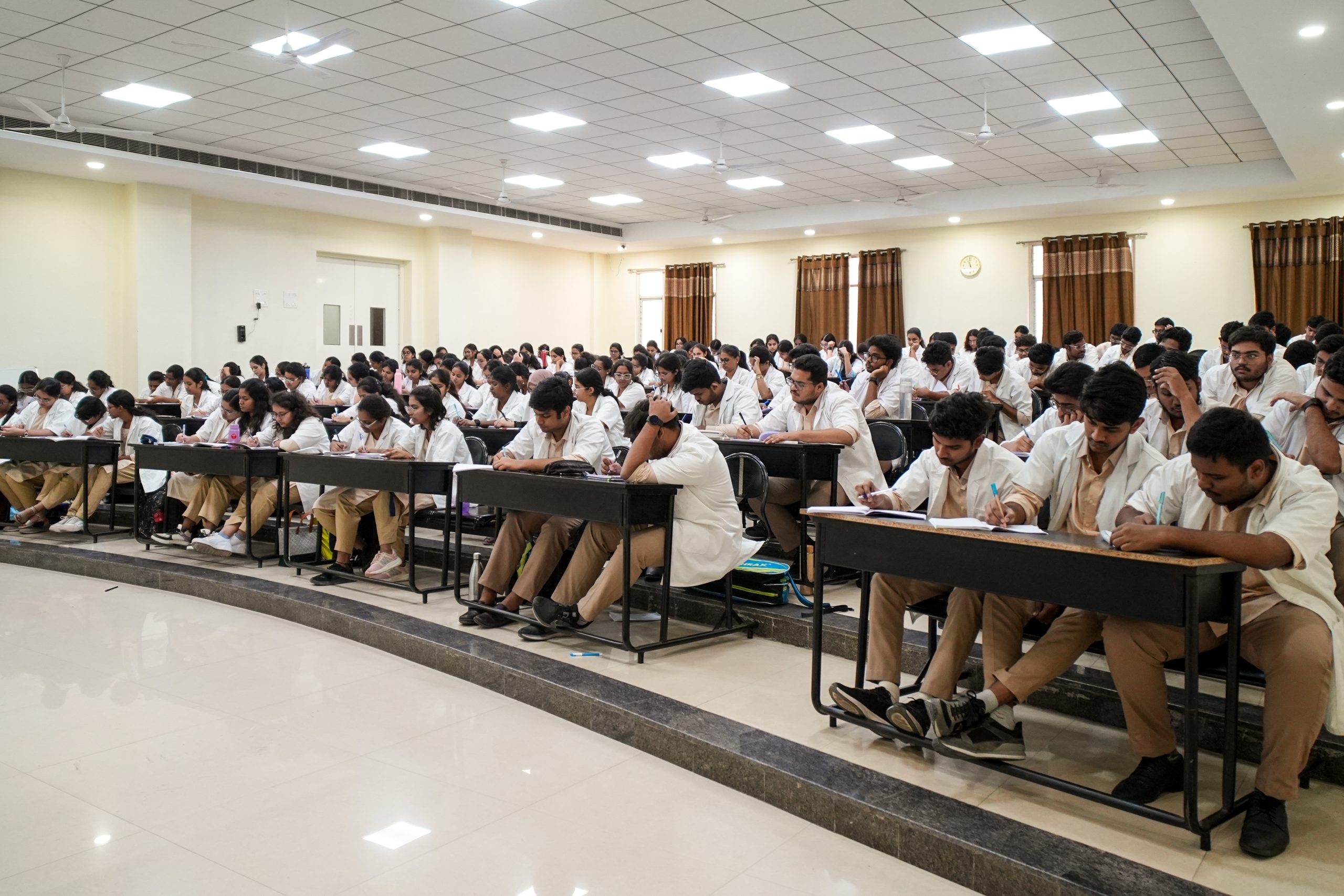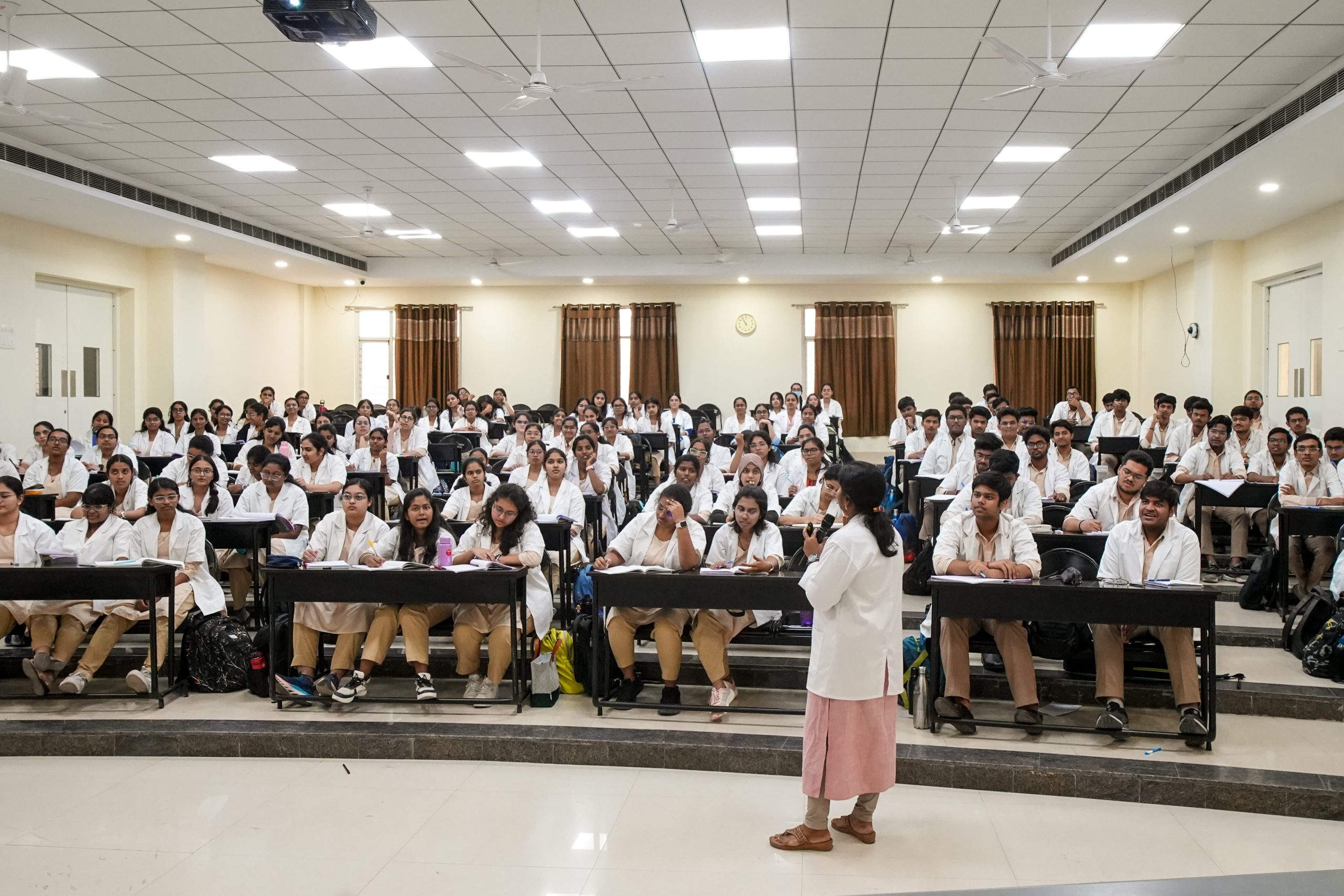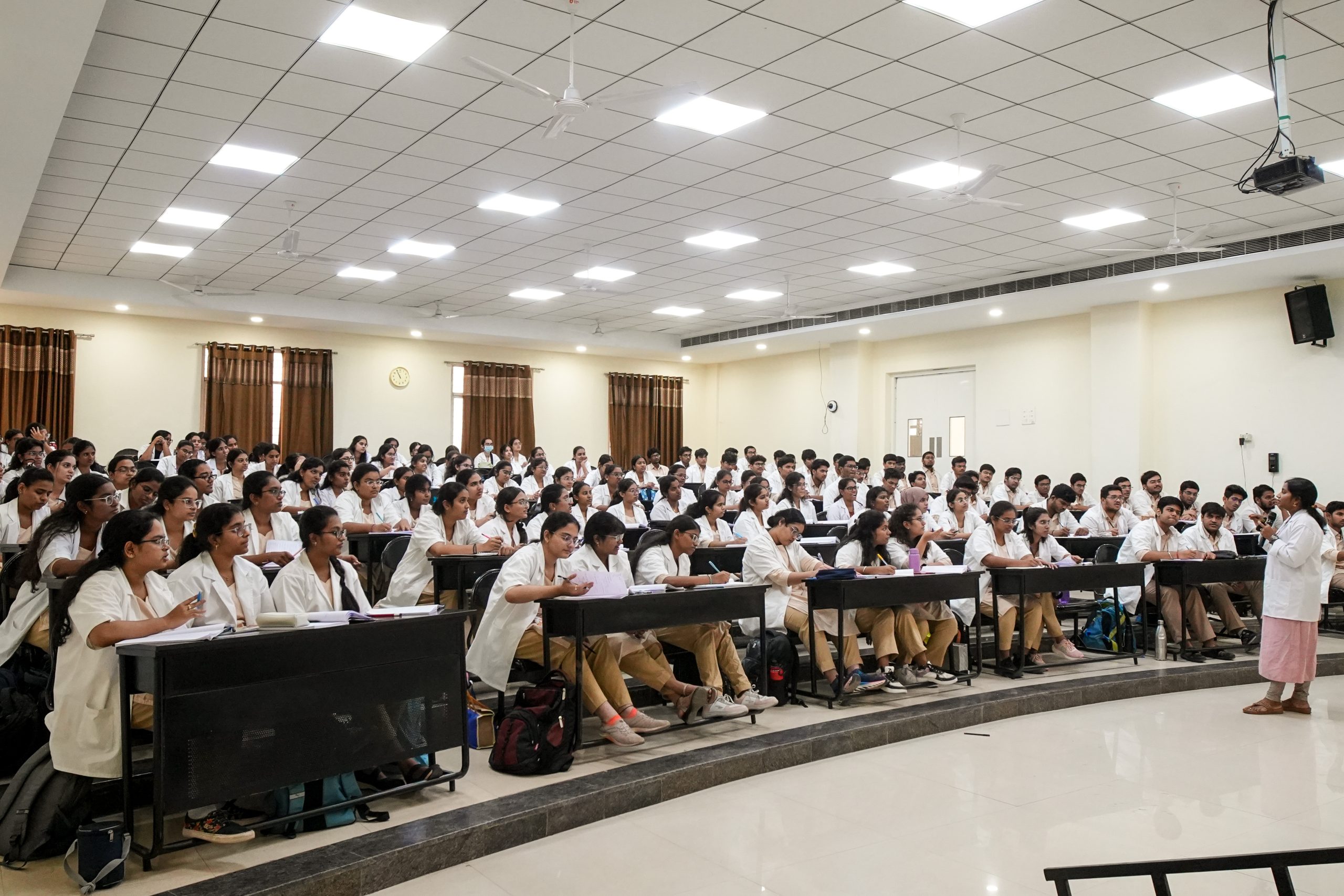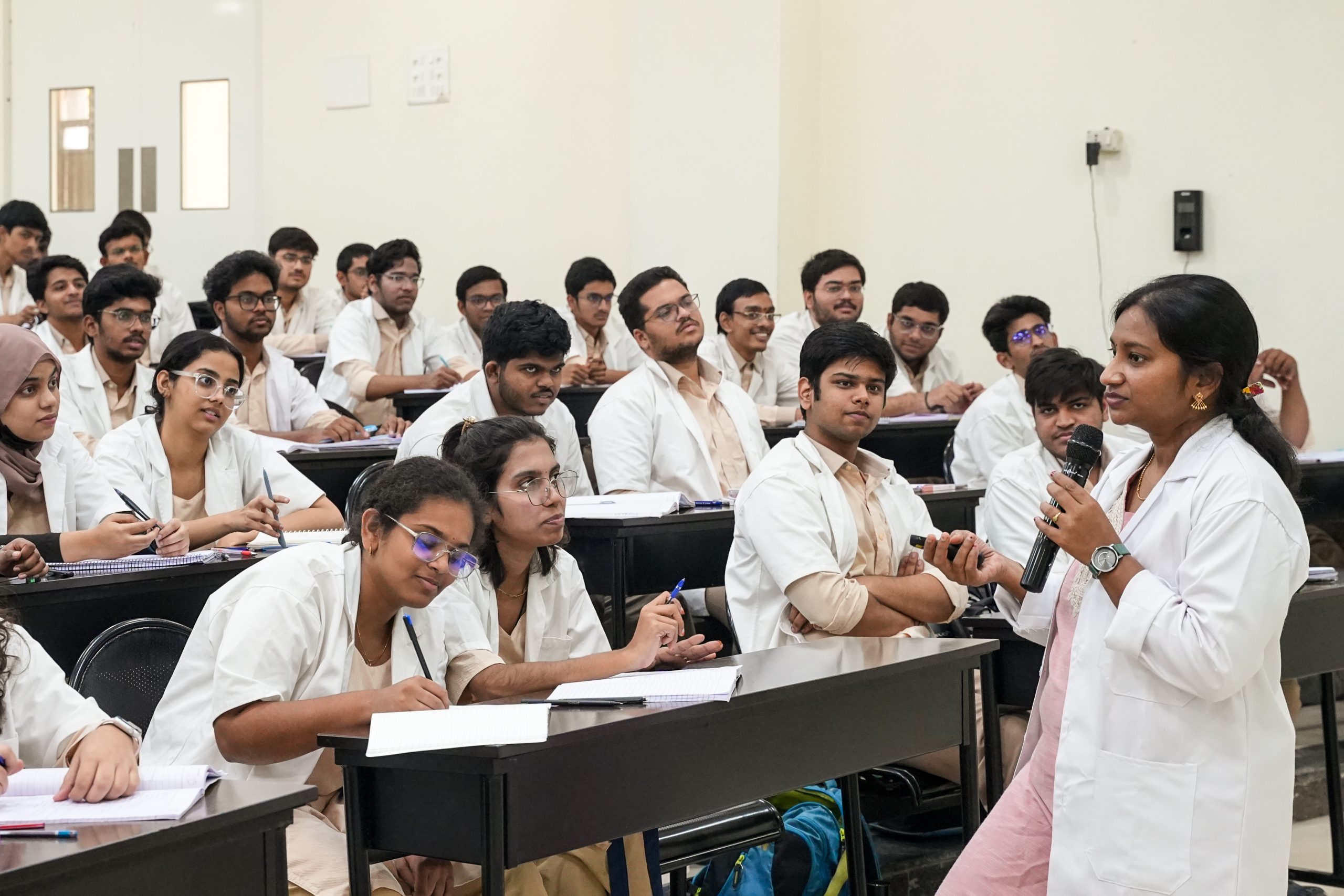


Lecture Halls
Lecture halls are an integral part of any college campus, serving as the primary space for academic instruction and knowledge dissemination. A well-designed lecture hall not only facilitates effective teaching and learning but also fosters engagement and collaboration among students and faculty.
Features of Mams Lecture Halls
Spacious Design:
- Lecture halls are designed to accommodate a large number of students comfortably.
- Tiered seating arrangements ensure clear visibility for every attendee.
Ergonomic Seating:
- Comfortable chairs and desks to support long hours of lectures.
- Ample legroom and writing space for added convenience.
Advanced Audio-Visual Systems:
- High-quality projectors, screens, and sound systems for effective presentations.
- Microphones and speakers to ensure audibility in large spaces.
Smart Technology Integration:
- Wi-Fi-enabled spaces for seamless access to digital resources.
- Smartboards, interactive displays, and other tools for modern teaching methods.
Proper Lighting and Ventilation:
- Adequate natural and artificial lighting for a conducive learning environment.
- Air-conditioning or proper ventilation to ensure comfort.
Accessibility:
- Ramps, elevators, and seating arrangements designed for differently-abled students.
- Strategically located halls for easy access across campus.
Functions of Lecture Halls
Classroom Learning:
- Primary space for lectures, seminars, and workshops.
- Suitable for both traditional and interactive teaching methodologies.
Examinations:
- Spacious seating layouts ensure a controlled and efficient environment for tests and assessments.
Guest Lectures and Events:
- Ideal venue for hosting guest speakers, academic discussions, and conferences.
Collaborative Activities:
- Group discussions, debates, and interactive sessions facilitated by the hall’s layout and technology.
Benefits of Well-Equipped Lecture Halls
Enhanced Learning Experience:
- Advanced tools and comfortable settings foster better understanding and retention.
- Technology enables diverse teaching methods, catering to different learning styles.
Improved Interaction:
- Clear visibility and audibility promote active participation and engagement.
Efficient Use of Space:
- Multi-functional design allows the hall to be used for various academic and extracurricular activities.
Motivation and Focus:
- A modern, well-maintained environment inspires students and faculty to perform at their best.
Essential Maintenance Practices
Regular Equipment Checks:
- Periodic maintenance of projectors, microphones, and air-conditioning systems.
- Timely upgrades to outdated technology.
Cleanliness:
- Ensuring a clean and hygienic environment with routine cleaning.
Feedback Mechanism:
- Gathering input from students and faculty to address issues or suggest improvements.




